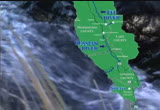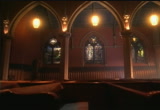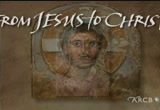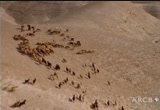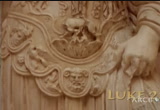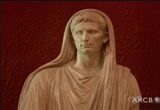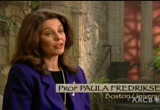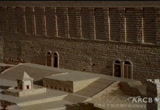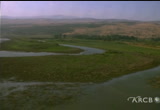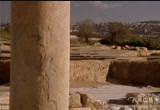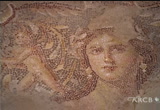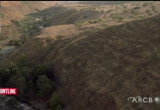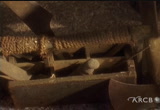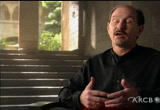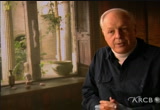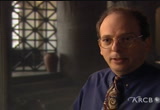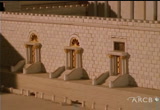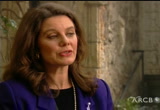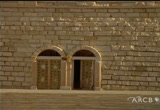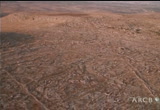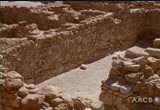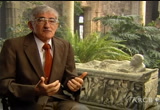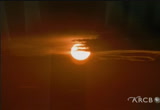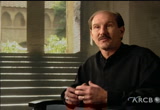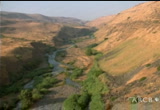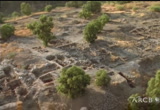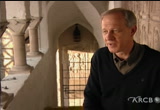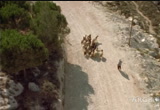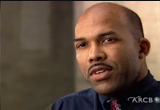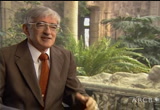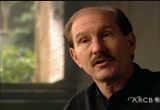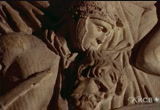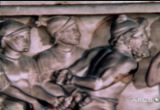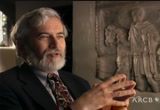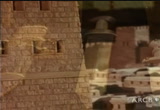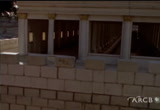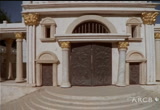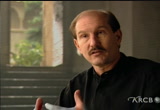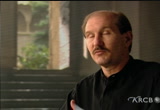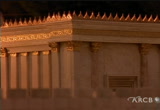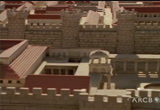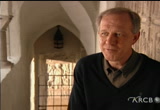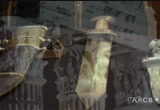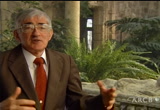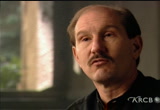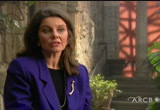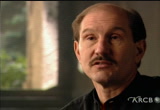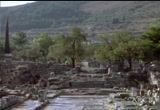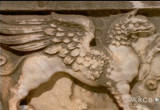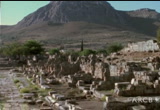tv Frontline PBS December 27, 2012 9:00pm-10:00pm PST
9:01 pm
>> frontline is made possible by contributions to your pbs station from viewers like you. thank you. and by the corporation for public broadcasting. major support for frontliis provided by the john d. and catherine t. macarthur foundation, committed to building a more just, verdant and peaceful world. more information is available at macfound.org. additional funding is provided by the park foundation, dedicated to heightening public awareness of critical issues. and by the frontline journalism fund, supporting investigative reporting and enterprise journalism. additional funding for this program was provided by the arthur vining davis foundations.
9:02 pm
>> ( choir singing ) >> "the angel gabriel was sent from god to a city of galilee named..." >> narrator: every sunday, in every corner of the world... >> "...the virgin, betrothed to a man whose name..." >> narrator: ...people gather to hear a story. >> "...and the virgin's name was mary." >> narrator: for more than 2,000 years, that story has been told and retold. >> "...and to bear a son." >> narrator: along the way, each generation has found in its telling its own meaning and interpretation. >> "'...you shall call his name jesus...'" >> narrator: that story, of a man called jesus of nazareth, a man who became jesus christ, was originally told by his first followers... >> "'...and be called the son of the most high.'" >> narrator: ...and then retold in accounts by later believers
9:03 pm
in the gospels. >> "the gospel according to st. luke." >> narrator: so began the building of a religion. now it is our turn, with the help of scholars and historians, theologians and archaeologists, to return to that time and use our best efforts to understand that story... of a man born in obscurity in whose name a faith was made.
9:04 pm
>> narrator: we know so little about him-- that he was born more than 2,000 years ago, and that he lived in palestine. we know he was baptized and became a preacher. and we know that he was publicly executed. >> ( dramatized ): what manner of man is this that even the winds and the seas obey him? >> narrator: with so little evidence to go by, archaeologists must sift the clues, and scholars decode the stories told by the first followers of jesus. >> the problem for any historian in trying to reconstruct the
9:05 pm
life of jesus is simply that we don't have sources that come from the actual time of jesus himself. >> the historian's task in understanding jesus and the jesus movement and early christianity is a lot like the archaeologist's task in excavating a tell. you peel back layer after layer after layer of interpretation, and what you always find is a plurality of jesuses. >> history isn't made to record the deeds of a person like jesus. jesus is very much like most people, statistically speaking, who have ever existed in the world: poor, obscure, no pretensions to royalty or distinction of any kind. they live under less than desirable conditions, and they die that way. there is nothing historically
9:06 pm
remarkable about that. billions of people pass through this veil of tears in exactly that way. >> we can tell the story by looking at the way the earliest christians themselves thought about jesus, by e wa they kept his memory alive, by the way that they told the story. >> narrator: central to the story is the fact that jesus was born a subject of the roman empire. >> ( dramatized ): and in those days, a decree went out from caesar augustus that all the world should be taxed. >> jesus was born during the reign of the emperor augustus in the sort of a booming economy of
9:07 pm
the pax romana, the roman peace. and on every coin that augustus had were the words, divi filius, "son of the divine one"-- julius caesar-- son of god. >> this is on every billboard in the mediterranean world. he is the savior of the world, and he brings the peace. now, you may have scruples about how he brings the peace, but he brings peace to rome and as the saying goes in latin, "peace to the rome and quiet to the provinces." >> ( dramatized ): this is he, augustus caesar, son of a god, who shall restore the golden age and spread his empire. >> narrator: rome's empire
9:08 pm
spread across the mediterranean, sweeping through north africa and reaching as far west as spain. to the east, it encompassed egypt, turkey, greece, and palestine, where jesus was born in the jewish land of judea, then ruled by king herod. >> in judea, the king, herod, was in effect a client king. he ruled almost in place of rome. he was the... he was the voice of rome, the instrument of rome, probably "instrument of rome" is best in that, because he... he had his own independent notions certainly. >> herod the great was probably one of the greatest kings of the post-biblical period in israel, but you wouldn't want your daughter to date him. he was ambitious, brutal, extremely successful. >> and it is one of the real untold ironies of jewish history that this man, who... who's the
9:09 pm
guy you love to hate in jewish history, really, leaves the most indelible mark on the face of the land of israel. >> it appears that herod thought of jerusalem as his showpiece. he really wanted to make it a place where people would come, just as people would have gone to athens, or rome, or the great cities of the mediterranean world. >> narrator: a meticulously accurate model of ancient jerusalem shows the extraordinary scale of herod's building program. >> and so, when herod built the city, or helped to rebuild the city, he did so on a monumental scale. and this can be seen in the rebuilding of the temple.
9:10 pm
>> narrator: we know exactly how herod rebuilt the temple because detailed descriptions of the architecture have survived. along the coast, herod constructed an aqueduct 40 miles long. it brought water to a new seaport he had built. in honor of the roman emperor caesar, herod named the city caesarea. >> we really need to get a... a feel for a city like caesarea maritima at the time of jesus precisely because it shows the crucial intersection of roman rule in jesus' own homeland.
9:11 pm
>> narrator: in this thriving seaport, the power of rome, its culture and commerce, commanded every aspect of daily life. >> in the middle of the city was a roman city, complete with the capital, temples to the deified roma-- that is the personification of rome itself. the political reality of the day was of a dominant power overseeing the life on a day-to- day basis. >> narrator: into this political climate jesus was born. the gospels present the familiar account of his birth.
9:12 pm
>> ( dramatized ): and she gave birth to her firstborn son, and wrapped him in bands of cloth, and laid him in a manger because there was no place for them in the inn. >> our best guess for the birth date of jesus would be 4 b.c.e. in other words, he was born before the death of herod the great, who died in 4 b.c.e. but i emphasize "best" and "guess." >> narrator: the gospels claim jesus was born in bethlehem. historians think it is more likely that he was born and grew up near the sea of galilee in the village called nazareth. >> the region was known for being a hotbed of political activity, and some of it violent. in the last few generations of new testament scholarship, the galilee has achieved this reputation for being the hotbed radalis younow,he...
9:13 pm
i don't know, the '60s berkeley of... of palestine. >> the galilee, by most of the traditional accounts, is always portrayed as a kind of bucolic backwater-- peasants on the hillsides. and yet, our recent archaeological discoveries have shown this not to be the case. nazareth stands less than four miles from a major urban center, sepphoris. sepphoris was founded as the capital of the galilee. and so it was really invested, much like caesarea maritima,
9:14 pm
with all the trappings of greek or roman city life. >> narrator: recent archaeological discoveries at sepphoris challenge the conventional picture of jesus' life. >> one of the more exciting discoveries that we made at sepphoris was a magnificent roman villa with a gorgeous, gorgeous mosaic on its floor, in a banquet hall. floor, in a banquet hall. floor, in a banquet hall. the lady was dubbed "mona lisa" by the press when we found her because she is really an extraordinary depiction of a beautiful woman of roman antiquity. and the picture we get is a community very much in the mainstream, but on the high end of the scale.
9:15 pm
sepphoris was not just a city with houses and with waterrks and things like that, but it had satellite settlements around. zare, toll ients and purpose, was a satellite village attached to the region or municipality of sepphoris. >> the findings really are requiring us completely to rethink jesus' social economic setting, because we really had thought of jesus as being really out in the... in the hinterland, utterly removed from urban life, especially roman-influenced urban life. what the excavations at sepphoris suggest is that jesus was quite proximate to a thriving and sophisticated urban environment that would have
9:16 pm
brought with it all of the diversity of... of the roman empire, and would have required, just to get on, you know, as the price of doing business, a level of sophistication that one would not have thought characteristic of jesus, the humble carpenter. >> narrato scholars today question the image of jesus the humble carpenter, and disagree about his social class. >> ( dramatized ): they were astounded, and said "where did this man get this wisdom? is not this the carpenter's son?" >> the difficulty for us in hearing a term like "carpenter" is that we immediately think of a highly skilled worker, and, at least in north america, in the middle class, making a very high income. as soon as we take that into the ancient world, we are totally
9:17 pm
lost, because, first of all, there was no middle class in the ancient world. there were the "haves" and the "have nots," to put it very simply. and in the anthropology of peasant societies, to say that somebody is an artisan or a carpenter is not to compliment them. it is to say that they are lower in the pecking order than a peasant farmer. >> narrator: very few scholars now believe that jesus was of such lowly birth. >> i'm not entirely convinced that we could characterize jesus as... as a peasant. i think that that probably miscasts jesus, especially in view of the more recent discoveries at sepphoris and elsewhere. >> he must be someone in the artisan class if he's working in the building industry. and in all probability, that would mean where he might grow up and live in nazareth, he likely went to sepphoris to earn his living. and this puts him in the interesting mix of cultures that
9:18 pm
would have been the daily life of a city like sepphoris-- through the marketplace, in the building. and sepphoris itself, as a city, was built precisely at the time that jesus was growing up and living just next door. >> you couldn't deal and wheel either in the workplace or in the market without knowing a good deal of greek. and i can't hardly imagine anybody worth their salt who wouldn't know some greek. jesus s trilingual jesus participated in both the aramaic and hebrew culture and its literatures, as well as the kind of hellenistic greek that he needed to do his business and his ministry. >> narrator: despite its greek and roman influences, sepphoris was a thoroughly jewish city. and jesus remained faithful to
9:19 pm
his religious heritage when he left nazareth to become a preacher. >> ( dramatized ): then he began to speak, and taught them, saying, "do not think i have come to abolish the law or the prophets. i have come not to abolish but to fulfill." >> what we learned from the gospel stories is not that jesus was not jewish. quite the opposite. he's completely embedded in the judaism of his time. >> was jesus a jew? of course jesus was a jew. he was born of a jewish mother in galilee, a jewish part of the world. all of his friends, associates, colleagues, disciples-- all of them were jews. he regularly worshipped in jewish communal worship-- what we call synagogues. he preached from jewish text,
9:20 pm
from the bible. he celebrated jewish festivals. he was born, lived, died, taught as a jew. nowadays, there are temples and sygogues everyere you go there is not a jewish community in the world that doesn't have a synagogue, and many of them are called temples. in this period, however, we should always remember that there is only one temple, and that's the one temple in jerusalem. ( people conversing in background ) >> narrator: for jews living in the time of jesus, the temple in jerusalem was the center of their religious life. >> the jewish historian josephus has a very memorable line. he says, "one temple for the one god." the jews saw themselves as a unique people with one god, one god alone, and this one god of this one special people had one
9:21 pm
temple. and that's a very powerful idea, reflecting-- accurately, i think-- the historical truth that the temple was a very powerful unifying source within the jewish community. this was the one, most sacred place on earth, the one place on earth where the earth rises up and the heavens somehow descend just enough that they just touch. this was the only one place on the entire earth where this was so. >> the temple in jerusalem was the symbolic heart of the country. jews everywhere, if they chose to, if they were pious, would put aside part of their income-- it's sort of like, oh, the way christmas clubs operate now-- you'd put aside money explicitly to be spent having a party in jerusalem.
9:22 pm
>> narrator: although the temple was the centerpiece of jewish life and worship, judaism was not a state religion. >> there's no such thing as a state church. it's not a monolithic religious or cultural entity at this time. indeed, what we're seeing more and more through the research and the archaeological discoveries, is how diverse judaism was in this period. >> sometimes reading ancient sources is like overhearing family quarrels in a distant room. and some of the most endearing aspects-- i can say this because i don't... i don't live in the first century-- but the most endearing aspects of reading this evidence that we still have is overhearing the lively quarrels. i mean, people who weren't priests at all would have absolutely firm opinions on how the priests should be doing their business. ( distant conversations ) >> there will have been a whole
9:23 pm
wide variety of groups in jerusalem, and perhaps in the countryside as a whole. these are the revolutionary groups who took their religious understanding of what judaism was and turned that into political program, political agenda. "we must destroy the roman empire or we must destroy jews who cooperate with the roman empire." >> narrator: we now know that other groups had even more extreme views, and their ideas shed new light on jesus' own message. >> one of the best examples of the vibrantly different thought that's at work in judaism in this period is, of course, now what we know from the discovery of the dead sea scrolls. as you leave jerusalem and go to the south and to the east, toward the dead sea, the terrain changes rapidly and starkly.
9:24 pm
you move off gradually from rolling hillside through the ravines, and it becomes stark and desolate. it's dry, it's arid, it's rocky, and it's rough. and then, all of a sudden, within a span of only about 13 miles, the entire terrain drops out in front of you at the surface of the dead sea. it is in that rugged cliff face on the banks of the dead sea that the dead sea scrolls were discovered at the site known as khirbet qumran.
9:25 pm
the dead sea scrolls are usually thought to have been produced by a group known as the essenes. and the essenes are a group that literally abandoned jerusalem, it seems, in protest against the way the temple was being r. and they go to the desert to get away from what they see to be the worldliness of jerusalem and the worldliness of the temple. >> the manual of discipline, or in hebrew, sera-hayachad, envisages a community living in almost total isolation, a community that is self- contained, that is governed very strictly. there is an oath of entry. it is very much a monastic community. x the congregation of the elect
9:26 pm
must pledge himself to live according to the rule of theo community, to love all the children of light, and to hate all the children of darkness." >> the essenes are what we might best call an apocalyptic sect of judaism. an apocalyptic sect is one that? thinks of itself as, first of all, the true form of the religion. yt >> by apocalyptic expectation, i mean that some group has a... an apocalupsis in greek-- a revelation that god is going to finally solve the problem of injustice, unrighteousness, evil in the world, by totally eradicating the evil. that's the terrible price of apocalypse; there's going to be %gzm totally eradicating evil-- and we, the good, whoever we are,
9:27 pm
are going to live with god, be it heaven on earth, or earth in heaven, forever, in justice and holiness and righteousness. >> among the dead sea scrolls, we hear not of just one messiah, but at least two messiahs. some of their writings talk about a messiah of aaron, a priestly figure who will come to restore the temple at jerusalem to its proper purity and worship of god. but there's also a messiah of david that is a kind of kingly figure who will come to lead the war. >> the qumran scrolls reveal a variety of scenarios for... for the end of days. the best known one, perhaps, is
9:28 pm
the scroll called "the war of the sons of light against the sons of darkness." and at some point, there will be a major battle, a cataclysmic struggle, not just between evil and the cosmic forces of good. and, needless to s, this will end with a victory for the sons of light-- in other words, for the group itself. >> now, we typically think of this as reflecting a belief in the end of the world, but, in fact, that's not exactly what they thought. they use language like "the end" last days," but what they mean is the present evil age is coming to an end. this is really more in the vein of a transformation of the
9:29 pm
present social order, and a return to a kind of golden age of statehood and independence. so it's really kind of a political expectation. it's not otherworldly. in fact, when it comes, it will be right here and right now. >> narrator: history offers no evidence that jesus was influenced by the essenes, but their apocalyptic challenge struck chords that reverberatedd throughout the homeland and echoed through the message of a prophet known as john the baptist. >> ( dramatized ): in those days, john the baptist appeared in the wilderness of judea, proclaiming "repent, for the kingdom of heaven has come near." >> john the baptist was a
9:30 pm
renowned kind of eccentric, it appears, from the way that josephus describes him. but he seems to have had this quality of a kind of prophetic figure, one who was calling for change. so he is usually thought of as being off in the desert wearing unusual clothes-- a kind of ascetic almost. >> john is taking people out into the desert, crossing the jordan. he is recapitulating the exodus, and he is planting little, ticking time bombs of apocalyptic expectation all over the jewish homeland, waiting for god to strike, as it were. >> narrator: it was as john's disciple, the gospels say, that jesus submitted to the ancient jewish rite of baptism.
9:31 pm
>> the evidence that jesus was a follower of john is as strong as anything historians can find about jesus. the reason is a certain embarrassment in the texts, trying to explain why on earth would jesus be apparently inferior to john. if he goes and is baptized by john, then somehow we have to explain how that can happen. >> the gospels then go on to say that jesus was the one predicted by john. most contemporary scholars would see that to be a... a construct developed by the early church to help explain the relationship between the two. >> the difference i see between john the baptist and jesus is, to use some fancy academic language, john is an apocalyptic eschatologist.
9:32 pm
an eschatologist is somebody who sees that the problem of the world is so radical that it's going to take some kind of divine radicality. god is going to descend in some sort of a catastrophic event to solve the world. there is another type of eschatology, and that's what i think jesus is talking. i'm going to calit ethic eschatology. that is the demand that god is making on us-- not us on god so much as god on us-- to do something about the evil in the world. >> narrator: we don't know to what extent jesus remained faithful to john's apocalyptic message, but at some point after his baptism by john, jesus seems to have embarked on his career as a preacher. >> ( dramatized ): jesus went
9:33 pm
thughoutalilee, teaching in the synagogues and proclaiming the good news of the kingdom, and curing every disease and every sickness among the people. >> jesus' career apparently was centered mostly in the towns and villages and a few small cities in the area of the galilee, his home region. >> jesus' ministry in the galilee is rather complicated, but i think we can begin to get the real better understanding of it through archaeology and through higher literary studies of the gospels today. those villages there were absolutely essential to his ministry. he's avoiding the big towns, or cities, probably because the elements who run those cities are of such a high class that they're probably not interested in jesus' message.
9:34 pm
>> narrator: whether he was himself a simple man of the people or someonfar more sophisticated, jesus does seem to have pitched his message at ordinary people and to have impressed them with his healing powers. >> healings, which seems to have been something of a specialty of his, for which he had a great reputation, people would bring-- from miles around, judging from the gospels-- they would bring their sick, the frail, to jesus to be healed. >> i love the story about... about jesus reaching down and picking up the dust and mixing it with his own spit and forming a kind of healing balm tt he applies to someone. and it's also interesting that in... in one healing case, jesus sort of misses the mark a bit and has to... has to refine the cure that he's applying. so one finds the intrusions of popular culture in these jesus traditions that are being elaborated through natural
9:35 pm
processes of... of storytelling. >> now, we need to be aware that there are other miracle workers around at the time, so just the idea of performing miracles is not in itself unique. >> in the first century, in one sense, everyone-- including, later in the century, vespasian, when he was becoming the emperor-- were miracle workers if they were important enough. what really was unusual about jesus is, why would god work through a jewish peasant? that sort of struck the roman imagination as unbelievable. not that there would be miracles, but that miracles might be performed by a jewish peasant. >> jesus limited his circulation to the agrarian populace. and his teaching was characterized by metaphors that would be readily understood by agrarian populations.
9:36 pm
>> ( dramatized ): jesus said to his apostles, "give them something to eat." they replied, "we have nothing here but five loaves and two fish." and he said, "bring them here to me." >> the feeding of the multitudes is one of the few stories that's told in all four gospels. that's a story near and dear to many people's hearts. jesus goes into the gallilean hillside. he takes about 5,000 people with him. and it's there that they have a picnic, even though there are no provisions made for that. he multiplies five loaves and two fishes to feed this multitude of people. well, i... i don't think it takes rocket science to figure out why that kind of story is so endearing to poor people. i mean, that's... that's... that's dinner and a show. >> narrator: behind the simple rustic imagery was the message
9:37 pm
of the coming kingdom of god, an enigma jesus did not attempt to simplify. >> jesus tells a parable about somebody who takes a mustard seed, plants it in the ground, and it grows up to be a great tree, or a bush at least-- a weed, though, in plain language. now, imagine an audience reacting to that. presumably the kingdom is like this, and they have to figure out, "what's it like? you mean, the kingdom is big? but you just said it's a big weed. so why don't you say a big cedar of lebanon? why a big weed? and besides, this mustard... we're not certain we like this mustard. it's very dangerous in our fields. we try to... we try to control it. we try to contain it. why do you mean the kingdom is something that the people try to control and contain?" every... every reaction in the audience... the audience fighting with themselves, as it were, answering back to jesus, is doing exactly what he wants. it's making them think, not about mustard, of course, but about the kingdom. but the trap is that this is a
9:38 pm
very provocative, even a weird, image for the kingdom. to say the kingdom is like a cedar of lebanon, everyone would yawn, say, "of course." "it's like a mustard seed." "what's going on here?" >> either people will tend to focus on jesus as some sort of social reformer, or as an apocalyptic firebrand preaching a coming kingdom of god on earth. and yet, it must be recognized that those are very different images, very different kinds of individuals, and yet both are reflected within the gospel's tradition. >> narrator: he may have preached social change. he may have preached a new kingdom on earth. either way, jesus was bound to
9:39 pm
find himself in conflict with the roman authorities. >> the core of jesus' preaching is the kingdomf god. and the difficulty for us is to hear that term as 100% political and 100% religious. not one, not the other. in the first century, those were inextricably intertwined. the kingdom, if you used that expression in the first century, would... meant the roman kingdom. it meant the roman empire. when you talked about the kingdom of god and were somehow setting it up in some tension with the roman empire, you were making a very caustic criticism of the roman empire, and you were saying that its system was not the system of god. >> the jewish historian josephus tells us a number of stories about characters whose career could be crudely summarized as following: some guy wakes up in the morning and he thinks he's the messiah or something, or
9:40 pm
he's a prophet. and he says... he gets a group of people to follow him. he says, "we're going to go out in the desert and we're going to wait for god to do something for us." so a whole bunch of people may go with him-- maybe thousands-- go with him out to this deserted, unsecured place, and they wait for what josephus calls "the tokens of their deliverance." and the romans send a vicious police action out there and kill everybody. when that kind of police action is perpetrated against what we might consider harmless fanatics, the romans are really giving us a very good historical lesson in... in how domination works. >> all the time that jesus is talking, i cannot not imagine the fact that he's going to be put to death. everything that he is doing is
9:41 pm
politically dangerous. if you are following jesus' life from day to day, you should be saying to yourself, "somebody is going to kill this man." >> ( dramatized ): after he had said this, he went on ahead, going up to jerusalem. >> moving to jerusalem, jesus was moving from the territory ruled by herod antipas, to the territory ruled directly by rome through a prefect, pontius pilate. >> pontius pilate was the governor from 26 to 36, and so
9:42 pm
that places us very clearly within the early period of roman rule. these are some of our most important and clearest dates for the activities of jesus' life. when jesus actually died we're not absolutely sure. some people would say as early as maybe 27, maybe some others as late as 33, but we do know it's under pilate. >> pontius pilatus, praefectus judea. pontius pilate, governor of judea. >> and we know of him as effective and a fairly ruthless administrator of his territory, the area of judea. there are several episodes recorded by josephus where eschatological prophets emerge, and pilate has no hesitation in eliminating them or in suppressing episodes of potential conflict or revolt within that territory. ( murmur of crowd )
9:43 pm
>> people from all over the empire went to jerusalem on passover. it's one of the most populated times in the whole city. it's a madhouse. there are extra animals being brought up-- sheep-- because of the passover holiday. there are pilgrims coming in from everywhere. and jesus comes up to town, too. he could have stayed home and had passover in the galilee, but he didn't. he's up in jerusalem because this iimportant. pilate would get nervous when there were crowds of jews, and, of course, he was legally responsible to be up in jerusalem when it was the most crowded of all. he would leave this very nice, plush, seaside town in caesarea, which was, you know, a nice pagan city, plenty of pagan altars, all the stuff he
9:44 pm
wanted-- and have to go up to jerusalem where... where all these jews were congregating, and stay there for crowd control until the holiday was over. he was in a bad mood already by the time he got to town, and passover would fray anybody's nerves. ( murmur of crowd ) >> if you were a pilgrim coming to jerusalem in these days, you would walk through the streets of this magnificent city. as you approach the temple mound, you come up to this massive, monumental complex that we call the temple, and there are grand staircases up which one can go and get up to the top. and you come out up on top of the platform in the outer precincts of the temple complex. the soldiers that were
9:45 pm
garrisoned in jerusalem would have been stationed in the nearby fortress called the antonia, which literally stands adjacent to the temple complex and kind of looks over it. they could keep an eye on things there, and, of course, everyone in the temple knew they were there, too. >> particularly at passover, which is a holiday that vibrates with this incredible historical memory of national creation and freedom, and the roman soldiers standing along the colonnade of the temple looking down at jews celebrating this. so it's... it's a politically and religiously electric holiday. >> ( dramatized ): then, jesus entered the temple and drove out all who were selling and buying in the temple, and he overturned the tables of the money changers. >> the difficulty with the story
9:46 pm
of jesus and the money changers in the temple is that the story is told in slightly different ways in different gospels. for example, in mark's gospel, and, in fact, in matthew, mark, and luke-- all three-- this event occurs in the last week of jesus' life and is clearly the event which brings him to the attention both of the temple leadership and the roman authorities. it is, in effect, what gets him killed. john's gospel, interestingly enough, though, puts the story of the cleansing of the temple as the very first episode in jesus' public career, more than two years earlier, and no mention is made of it near his death. so, there are a few problems with the... with the story itself, although it is one of the stories that appears in all the gospels, so something is going on there. >> it's unclear how he actually gets into trouble. he wouldn't have wandered into
9:47 pm
the crosshairs of the priests because, compared to how the pharisees are criticizing the priests, what jesus doing... is doing is fairy minimal. if he had been complaining about the priests, or criticizing them, or criticizing the way the temple was being run, this would just... it's business as usual. this is... this is one of the aspects of being a jew. >> another possibility, though, is that jesus sounds more like the essenes, who were really criticizing the wholway the temple is run as having become too worldly, too caught up in the money of the day, or maybe just too roman. and if that's the case, then his action looks much more like an act of political subversion.
9:48 pm
>> try and imagine the temple for what it was. it was both the house of god and the seat of collaboration. it was the high priest caiaphas who had to collaborate with the roman occupation. now, how would jesus, as a gallilean peasant, see the temple? i think with ferocious ambiguity. on the one hand, it was the seat of god, and you would die to defend it from, say, a roman emperor like caligula putting a statue in there. but what would you do when it was also the place where caiaphas collaborated with the romans? was the temple really the house of god anymore? what jesus does is not cleanse the temple; he symbolically destroys it. >> if you really think the end of the world is at hand, that
9:49 pm
has a kind of liberating and frantic energy that goes along with it. it's not good for quiet crowds and social stability. and ven the... the emotional and religious tenor of this holiday anyway, to have somebody preaching that the kingdom of god was really on its way-- perhaps it was going to be coming within, you know, within that very holiday-- preaching that the... the... in the days before passover, it's the equivalent of shouting "fire!" in a crowded theater. >> narrator: the gospels agree that this politically charged climate was the occasion for his arrest, but what happened next, and the role played by the priests, remains unclear. >> i think there's some kind of cooperation between the chief priests and pilate. the chief priests always had to cooperate with rome because it's their jobs. they're mediating between the imperial government and the people. then there was a perceived
9:50 pm
danger that pilate was on the verge of some kind of muscular crowd control. people would get hurt or killed when pilate felt so moved. and perhaps for this reason, jesus was turned over to rome. >> the most difficult thing for us, after 2,000 years, is to bring our imagination down when we're looking at the passion of jesus, because we want to think the whole world was watching, or all of the roman empire were watching, or all of jerusalem was watching. i take it for granted there were standing orders between pilate and caiaphas about how to handle lower-class, especially, dissidents who cause problems at passover. >> jesus would have represented, you know, a kind of activist and resistor in... in pontius pilate's experience that he had been dealing with for years, and with varying degrees of... of success and effectiveness, obviously. but jesus would have been a blip
9:51 pm
on the screen of pontius pilate because the unrest and the uprisings were so common-- a part of daily life for the roman administration of judea-- that jesus would have been seen, i think, as very, very little out of the ordinary. >> now, i don't for a moment think that pilate would have been worried that jesus could have challenged the power of the emperor. that's not the point. the point is, any challenge to roman authority, any challenge to the peace of rome would have been met with a swift and violent response. >> in dealing with a person who was guilty of sedition, pilate had considerable leeway. he was probably driven by convention, and that is the process of executing state criminals through crucifixion. >> there is no doubt in my mind but that the persons responsible for the actual execution of
9:52 pm
jesus were the romans. the romans practiced crucifixion. it was... while it was not unknown to the jewish people, it was not a form of jewish execution. >> ( dramatized ): then they brought jesus to the place called golgotha, which means "the place of a skull." >> a crucifixion site was usually near, say, a main road into the city. it was a warning locatn. the uprights for the crosses were usually left there permanently. and you have to think of that site as not a place where people would go regularly. it... it's an abhorrent site. it's supposed to be a warning, even when nobody is hanging there. so the idea that there would be crowds around the crucifixion-- leave... leave out passover or anything like that-- just watching, i think most people would probably avert their eyes and walk away because they don't want to be on the side of the romans who are killing and
9:53 pm
crifying one more good jew among the thousands who have been crucified in the first quarter of that century. >> death by crucifixion was certainly an awful, awful experience for the persecuted individual. it was slow, it was painful, and it was public terror. >> it's not from bleeding. it's not from the wounds themselves that the death ocrs. it's rather a suffocation because one can't hold oneself up enough to breathe properly. and so, over time, really, it's the exposure to the elements and the gradual loss of breath that produces death. >> we don't have that much detail about the actual crucifixion of jesus. what we have are the stories in the gospels.
9:54 pm
and they're... uh, interestingly and appropriately, the gospel writers are drawing on psalms, psalms that, in... in the jewi canon, are... are often cries to god. and that's... they're grabbing onto that literature to shape their narrative presentation of the crucifixion. those are cries of terror and loneliness. they're really appeals to god for meaning. the words that are put in jesus' mouth in mark, "why have you forsaken me?" it's... it's the religious power ofhe psalmthats really one of those wonderful moments of concrete continuity between what this... this very passionately religious first-century jew might have been thinking as he was dying this horrible death on the cross as the finale to this... this week of passionate religious excitement and commitment.
9:55 pm
and... and asking god what happened. >> the plaque that was nailed to the cross is one of the few clear pieces of historical evidence that we have. >> iesus nazereno, rex iudorum. >> the plaque, which names him as jesus, the king of the jews, suggests that the charge on which he was executed was one of political insurrection, a threat the pax mana. but he's also now a victim of the pax romana.
9:56 pm
>> narrator: in the year 51 of the common era, by the shores of the aegean sea, a visitor arrived at the greek city of corinth. his name was paul of tarsus. >> let's imagine paul going up the main street of corinth, through the monumental roman archway, into the forum, the center of city life, the place where all the business and in most of the political activities are done in the public life of this greco-roman city.
9:57 pm
here are the shops, here are the offices of the city magistrates, and we are standing literally in the shadow of the great temple of apollo. >> narrator: apollo, the sun god, watched over the fortunes of corinth. like zeus, hera, artemis and athena, apollo was one of the olympian gods, that family of divinities who presided over the ancient and diverse pagan universe. >> paganism is our designation for what 90-something percent of the people in the mediterranean were doing. jews are a visible minority. and then, everybody is doing lots of other things.
9:58 pm
>> one would have found a rich array of deities meeting the various needs of individuals. it's like going to a supermarket and being able to sort of shop for god. and you have them at various times in your life and for various functions of your... of your living. >> narrator: by the time paul arrived in corinth, pilgrims had been worshipping for centuries at local shrines, like the sacred spring of the pierenne. to devout pagans like these, paul's message of a jewish messiah come to save all mankind, jew and gentile alike, must have seemed outlandish. >> and so, when we hear paul say, "i've determined to know nothing among you but jesus
9:59 pm
christ, jesus the messiah and him crucified," that must have struck an interesting chord among these cosmopolitan greeks who would have inhabited corinth at that time. >> ( dramatized ): i am a jew born in tarsus in cilicia, educated strictly according to our ancestral law, being zealous about god. >> the apostle paul is, next to jesus, clearly the most intriguing figure of the first century of christianity and far better known than jesus caus he wrote all of those letters. >> ( dramatized ): for as long as you eat this bread and drink the cup, you proclaim the lord's death until he comes. wait for his son from heaven, whom he raised from the dead. whatever is hobl
404 Views
IN COLLECTIONS
KRCB (PBS) Television Archive
Television Archive  Television Archive News Search Service
Television Archive News Search Service 
Uploaded by TV Archive on

 Live Music Archive
Live Music Archive Librivox Free Audio
Librivox Free Audio Metropolitan Museum
Metropolitan Museum Cleveland Museum of Art
Cleveland Museum of Art Internet Arcade
Internet Arcade Console Living Room
Console Living Room Open Library
Open Library American Libraries
American Libraries TV News
TV News Understanding 9/11
Understanding 9/11